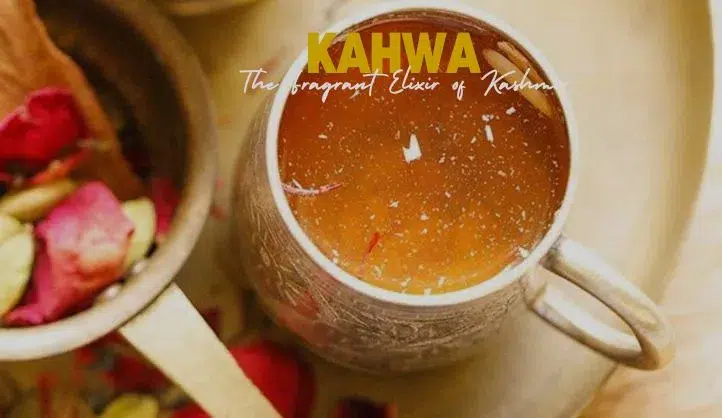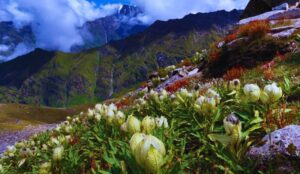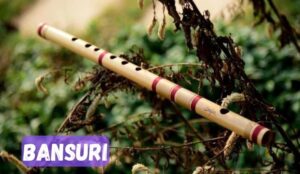Kashmir, known as “Paradise on Earth,” is famous not only for its stunning landscapes but also for its rich cultural and culinary heritage. One of the most treasured beverages of this region is Kahwa, a traditional green tea infused with aromatic spices. Warm, flavorful, and refreshing, it is more than just a drink; it is an experience that brings warmth and comfort, especially in the cold winters of Kashmir. Whether served during gatherings, celebrations, or enjoyed in the peaceful solitude of a snowy evening, it holds a special place in Kashmiri culture.
Origins and Cultural Significance of Kahwa
It has a long history that dates back centuries. It is believed to have originated from Central Asia and was introduced to Kashmir through trade routes that connected India with Persia, China, and the Middle East. Over time, it became an integral part of Kashmiri tradition, blending local flavors with influences from different cultures.
In Kashmiri households, it is more than just a tea; it is a symbol of hospitality and warmth. It is commonly served to guests as a sign of respect and is an essential part of festive occasions, weddings, and family gatherings. During the harsh winter months, a hot cup of Kahwa provides comfort and helps in keeping the body warm. It is often prepared in a traditional brass kettle called a “Samovar,” which enhances its authentic taste and aroma.
Ingredients Used in Kahwa
The unique flavor of Kahwa comes from a blend of simple yet aromatic ingredients. The traditional recipe may vary slightly from family to family, but the key ingredients remain the same:
1. Green Tea Leaves – The base of Kahwa provides a mild, refreshing taste and numerous health benefits.
2. Saffron – Known as “golden spice,” saffron adds a rich color and a distinct aroma to the tea.
3. Cardamom – Enhances the fragrance and provides a warm, spicy-sweet flavor.
4. Cinnamon – Adds a slight sweetness and a comforting aroma.
5. Almonds – Sliced or crushed almonds add a nutty flavor and a crunchy texture.
6. Honey or Sugar – Used as a sweetener to balance the flavors.
7. Rose Petals (Optional) – Some variations include dried rose petals for added fragrance and flavor.
How Kahwa is Prepared
The preparation of Kahwa is simple yet requires patience to bring out its best flavors. Here is a step-by-step guide:
Brewing the Tea
1. Heat water in a pan or traditional Samovar until it starts to simmer.
2. Add green tea leaves and let them steep for a few minutes to release their flavor.
3. Add crushed cardamom, cinnamon sticks, and saffron strands.
4. Let the mixture simmer for another few minutes to infuse the flavors properly.
Adding Sweetener and Garnish
5. Strain the tea into cups and add honey or sugar as per taste.
6. Garnish with sliced almonds and rose petals for a decorative and flavorful touch.
7. Serve hot and enjoy the warmth and aroma of authentic Kashmiri Kahwa.
Health Benefits of Kahwa
It is not only delicious but also offers several health benefits:
1. Boosts Immunity – The antioxidants in green tea and saffron help strengthen the immune system.
2. Aids Digestion – Spices like cinnamon and cardamom promote healthy digestion and relieve bloating.
3. Improves Metabolism – Green tea helps in weight management by increasing metabolism.
4. Reduces Stress – The warm aroma of spices has a calming effect, reducing stress and anxiety.
5. Enhances Skin Health – Saffron and almonds are known to improve skin texture and promote a natural glow.
Variations of Kahwa
There are different variations of Kahwa depending on personal preferences and regional adaptations:
1. Kashmiri Traditional Kahwa – Made with green tea, saffron, cardamom, cinnamon, and almonds.
2. Ginger Kahwa – Includes ginger for added warmth and digestive benefits.
3. Rose Kahwa – Infused with dried rose petals for a floral aroma and taste.
4. Dry Fruit Kahwa – Enhanced with additional dry fruits like walnuts and pistachios for a richer taste.
5. Spicy Kahwa – Includes black pepper and cloves for a stronger, more intense flavor.
Kahwa in Kashmiri Festivals and Daily Life
It plays a significant role in Kashmiri daily life and festive traditions:
Wedding Celebrations – A special Kahwa is served to guests during weddings, symbolizing joy and hospitality.
Winter Rituals – Families gather around the fire, sipping Kahwa to stay warm during the cold months.
Morning and Evening Routine – Many Kashmiris start and end their day with a refreshing cup of Kahwa.
Religious and Cultural Gatherings – Served at important cultural and religious events as a mark of respect and tradition.
Where to Try Authentic Kahwa
If you want to experience the authentic taste of Kashmiri Kahwa, here are some places where you can try it:
1. Local Homes in Kashmir – The best way to enjoy it is to have it in a traditional Kashmiri home, where it is prepared with love and care.
2. Tea Houses in Srinagar – Many tea stalls and cafes in Srinagar serve authentic Kahwa, offering a perfect setting with scenic views.
3. Luxury Hotels in Kashmir – High-end hotels and resorts often serve it as a welcome drink to guests.
4. Kashmiri Restaurants Outside Kashmir – Some specialty restaurants in major cities offer it as part of their Kashmiri cuisine menu.
Why You Should Try Kahwa
1. Authentic Himalayan Experience- It is deeply rooted in Kashmiri and Ladakhi traditions, offering a taste of the region’s cultural heritage.
2. Perfect Winter Drink- Its warmth and rich flavor make it an ideal beverage for cold weather.
3. Health Benefits- Packed with antioxidants, It helps in digestion, boosts immunity, and reduces stress.
4. Unique and Aromatic Flavor- The combination of green tea, saffron, and spices creates a distinctive taste that is both soothing and refreshing.
5. Symbol of Hospitality- Enjoyed in Kashmiri and Ladakhi homes, Kahwa is a drink of welcome and togetherness, making it special beyond just its taste
Other Traditional Dishes of Kashmir
Chhutagi
This hearty pasta dish is made by shaping small pieces of dough into bow-tie or leaf-like shapes, which are then cooked in a rich vegetable or meat-based broth. The broth is often flavored with onions, garlic, and local spices, giving it a warm and earthy taste. Packed with nutrients, Chhutagi is both filling and perfect for Kashmir’s cold weather, providing the energy needed to withstand the region’s harsh climate.
Skyu
Similar to Chhutagi, Skyu features hand-rolled dough pieces cooked in a thick broth with root vegetables like potatoes, carrots, and turnips. Often enriched with butter or ghee, Skyu is rich, creamy, and highly comforting. In traditional Kashmiri homes, Skyu is often prepared in large quantities and enjoyed with family, making it a beloved dish during gatherings.
Thukpa
A popular noodle soup in Kashmir, Thukpa is prepared with soft wheat noodles served in a flavorful broth with vegetables, meat, or sometimes eggs. The broth is typically seasoned with garlic, ginger, and chili for a rich, savory taste. Thukpa is not only a popular street food but also a staple in Kashmiri homes enjoyed as a warming and wholesome meal during winter evenings.
Mokthuk
This delicious fusion combines momos (dumplings) with Thukpa, blending the chewy texture of dumplings with the comforting warmth of noodle soup. The dumplings are often stuffed with meat, vegetables, or cheese, making Mokthuk a hearty and satisfying dish. Served with spicy chutney or pickles, it is a favorite comfort food in Kashmiri households, especially on chilly nights.
Conclusion
It is more than just a tea; it is an expression of Kashmiri culture, tradition, and hospitality. Its unique blend of flavors, soothing aroma, and numerous health benefits make it a cherished beverage. Whether you are visiting Kashmir or preparing it at home, a cup of Kahwa promises warmth, relaxation, and a taste of Kashmir’s rich heritage. So, the next time you crave something warm and comforting, brew yourself a cup of Kahwa and experience the magic of this traditional Kashmiri tea.
FAQs about Kahwa
1. Can Kahwa be made without saffron?
Yes, but saffron adds a unique flavor and color to the tea.
2. Is Kahwa caffeinated?
Yes, since it is made with green tea, it contains some caffeine.
3. Can Kahwa be consumed daily?
Yes, it is a healthy drink and can be enjoyed daily.
4. Is Kahwa good for weight loss?
Yes, its ingredients help boost metabolism and digestion, aiding in weight management.
5. Where can I buy authentic Kashmiri Kahwa?
It is available in specialty tea shops, online stores, and Kashmiri markets.





